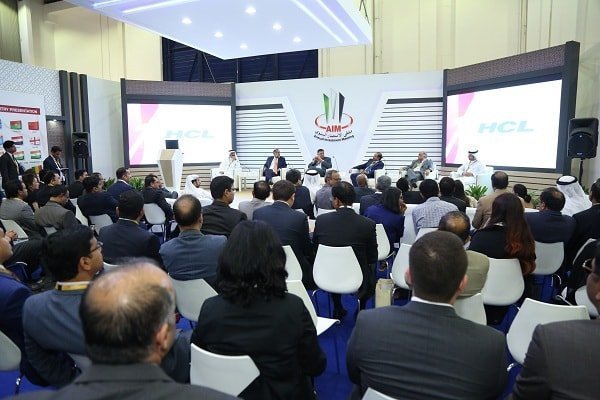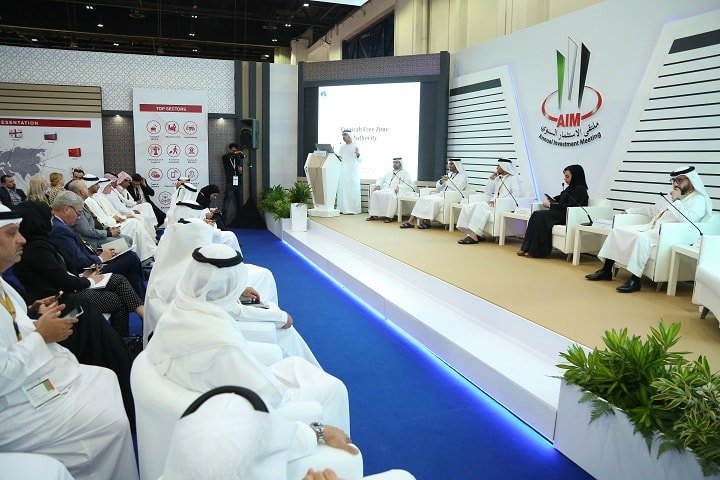Al Rajhi Bank, Saudi Arabia’s second largest bank and the world’s largest Islamic bank, reported a growth rate of 8 percent during 2015- 2018, with 8.9 percent increase in operating income and a 27 percent expansion in the number of mortgages in 2018. Additionally, its current accounts grew 6.6 percent in 2018 amid the rising Singapore Interbank Offered Rate (SIBOR) environment, the international benchmark interest rate. The bank has been playing a visible and active role in enticing foreign investors to Saudi Arabia.
The bank made the announcement ahead of the upcoming Annual Investment Meeting (AIM) 2019, the latest edition of the world’s leading platform for FDIs, which will take place in Dubai from 8th to 10th April under the theme ‘Mapping the Future of FDI: Enriching World Economies through Digital Globalization’. Al Rajhi Bank’s Chief Executive Officer, Steve Bertamini, is one of AIM’s conference and workshop speakers this year.
Bertamini pointed to the bank’s robust financial performance, industry standing, and proactive and sustained engagement with regional and global investors as the main catalyst to create investor interest in the Kingdom, which will then generate more foreign direct investments (FDIs).
In addition to Al Rajhi Bank, Annual Investment Meeting (AIM) 2019, will also witness the participation of Mario Cimoli, Deputy Executive Secretary, Economic Commission for Latin America and the Caribbean (ECLAC), Chile.
Latin American economies have shown an uptick in growth and it is estimated that the economy is set to grow by 1.7 percent in 2019. According to ECLAC, medium-size economies are reaching better growth performances, with Colombia, Chile and Peru estimated to grow 2.7, 3.9 and 3.8 percent, respectively. In addition, Central America’s economy is anticipated to grow by an estimated 3.2 percent.
According to Cimoli, an increase in venture capital investments in Latin America as the number of unique global investors in this part of the world more than doubled between 2013 and 2017. Major targeted sectors were financial technology, market places, logistics and distribution, and transportation. Silicon Valley’s largest players were some of the key investors.
At the upcoming Annual Investment Meeting, Dr. Mukhisa Kituyi, Secretary General, United Nations Conference on Trade and Development (UNCTAD), Switzerland, will also underscore the need to make critical investments in digital development strategies and other technological advances.
He stated that foreign investments in developing countries accelerated by 3 percent, reaching a value of USD 694 billion in 2018 and bringing their share of total global flows to 58 percent.
In his opinion, the adoption of digital technologies has the potential to transform the international operations of multinational enterprises (MNEs) and the impact of foreign affiliates on host countries. The impact of digital MNEs on host countries is less directly visible in physical investment and job creation, however, their investments can have important indirect and productivity effects, and contribute to digital development.
Investment in digital development strategies will be among the key topics of discussions at AIM 2019. It is also one of the focused areas of UNCTAD’s World Investment Report on ‘Investment and the Digital Economy,’ which was released to help boost investments in developing countries.
This year’s AIM will witness the presence of over 80 speakers from countries as Brazil, UK, Republic of Tatarstan, Switzerland, Saudi Arabia, Nigeria, Kenya, Ethiopia, UAE, Turkey, Cyprus, Germany, Canada, China, Sweden, France, Ghana, Ukraine, Hong Kong, South Africa, Kuwait, Bahrain, Republic of Namibia, Mauritius, Russia, Italy, Republic of Togo, Sierra Leone, and countries from Latin America. The forum will also witness 20 speakers highlighting potential investment opportunities in their countries.

In addition to countries around the globe, AIM this year will also shed light on the importance of free zones in attracting FDIs. Free zones are now present in more than 80 percent of states in the world, including emerging countries, and comprise nearly 30 percent of global trade. Asia region consists of the largest number of free zones in the world, followed by North America, South America and the Middle East. With 160 free zones (7.3 percent), the Middle East is the fourth largest host region in the world with Dubai comprising of 30 percent of the free zones.
Offering companies benefits as low tax rates, faster procedures, ease of business, quick access to international markets, robust physical and digital infrastructure, vigilant security and seamless regulations, free zones around the world have been the key source of economic growth. With free zones driving the growth of the economy, industry experts suggest that markets as US, European Union, MENA, Asia and Latin America will witness a robust growth in years to come.
To generate more FDIs from the Middle East, meanwhile, the financial institution said it continues to develop Sharia-compliant products, including securitization, supply chain financing and point of sale financing for SMEs. The bank’s Sharia-compliant revolving credit card has been a strong contributor to its growth in net profit margins and fee income.
Complete details of AIM 2019 are available at http://www.aimcongress.com/






















